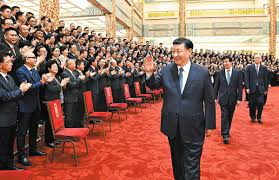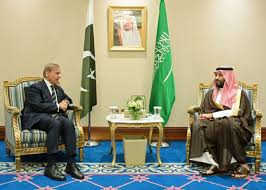Would a far-right election victory in France knock down EU’s green hopes?

A populist power grab in Paris could reverberate across the entire EU. Photo: Gustafson Porter Bowman
On the night of the European elections, French president Emmanuel Macron did not wait until the official results were called to announce the dissolution of the country’s parliament and, consequently, to call new elections already by the end of June. The first snap election in more than 25 years has taken many of the president’s political allies and enemies in France and Europe by surprise and opened the door to what could become the country’s first far-right government led by the populist Rassemblement National (RN) party. A power grab akin to the RN’s gains in the EU elections could embolden the party that has slammed the EU Green Deal as a tool of “punitive ecology” that coerces and burdens French citizens. Unless Macron’s centrists and the left find a way to avert a far-right victory, the surprise move could unravel progress in the energy and climate policies of the EU’s second largest economy and weaken ambitions at a critical point in time – even though most people in France wish for more effective climate policies.
In a mere five-minute speech, French president Emmanuel Macron threw his country’s political class in turmoil by responding to the defeat of his Renaissance party by the far-right Rassemblement National (National Rally – RN) party in the European elections. In his terse address on 9 June, Macron announced that he was dissolving the lower house of the country’s parliament ahead of its five-year term ending in 2027. This meant that for the first time since 1997, a snap election must take place in two rounds within 40 days, on 30 June and 7 July.
In the EU elections, RN candidate Jordan Bardella, a young protégé of party leader Marine Le Pen, obliterated the ruling camp by garnering over 31 percent of the vote, thereby more than doubling its number of voters. The far-right’s influence has thus never been greater in post-war France and Europe, as the RN is sending 30 of France’s 81 MEPs to the European Parliament, making it the biggest delegation ahead of the conservative German CDU/CSU alliance. “I cannot act, at the end of this day, as if nothing had happened,” Macron told citizens after the scale of his party’s loss became clear. “Thereby I dissolve, tonight, the National Assembly.” The French are now called on to elect 577 deputies for the next five years. Macron himself, however, will not have to stand for election again before his term as head of the French state is scheduled to end in three years’ time. In the first ballot, MPs can already gain an absolute majority by receiving more than half of the vote in a constituency – and if no candidate achieves it, gaining a relative majority in the second round is sufficient to win the seat. The party winning the most seats in parliament can then pick the prime minister, who acts as head of government, while the president remains France’s head of state.
Energy was and still is at the heart of the political debates during the EU election campaign: the three main groups in the French snap election race – the far right, the leftist alliance and Macron’s centrist party – all positioned themselves on the matter and, with a view to restoring the French people’s purchasing power, made lowering energy prices a priority. On the other hand, environment-related topics were perceived as lacking from most campaign debates. According to Phuc-Vinh Nguyen, a researcher on French and EU energy policy at the Jacques Delors Institute think tank, they will not be the focus this time either. “The priorities are purchasing power, energy price hikes, and then security and immigration,” he noted. “The transition will likely be relegated to second place” – even if French citizens still consider climate change one of the top issues that the EU is facing. However, the economy’s transformation creates uncertainties and fears that were easily reclaimed by the RN, which surfed on the wave of farmers’ protests in early 2024 to campaign against so-called ‘punitive ecology.’ “So far, none of the progressive forces have been able to argue in a sufficiently convincing manner to counter this discourse,” Nguyen added.





